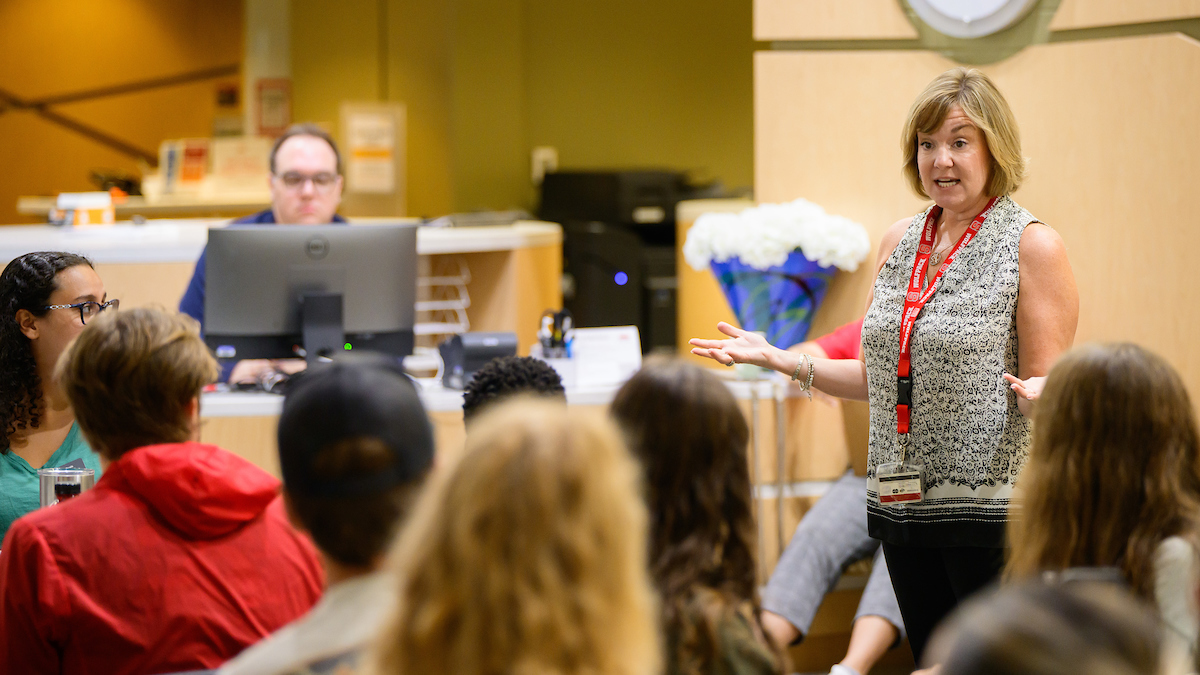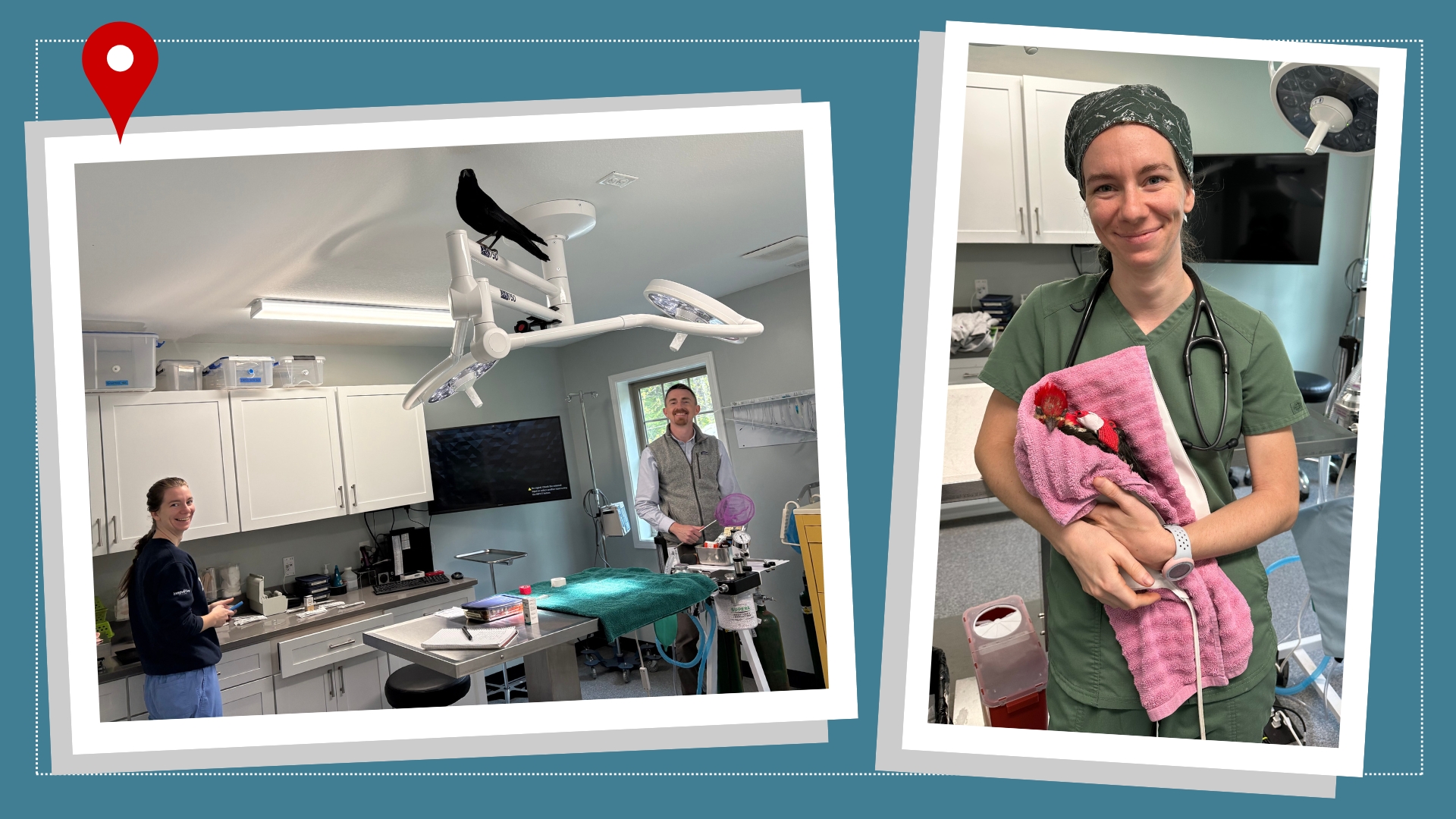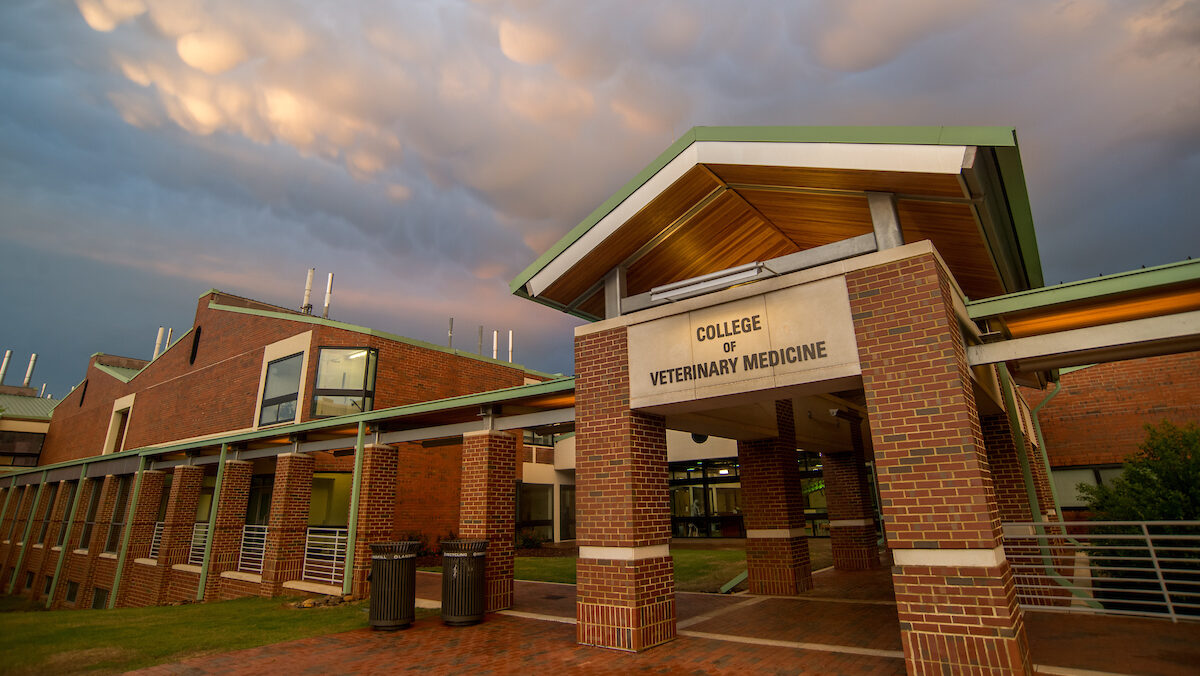NC State’s New Equine Scholars Program Helps Put Undergrads in the Saddle of a Veterinary Career
Launching this fall, the program invites qualified undergraduate students with a demonstrated interest in horse health to join NC State’s DVM program from partner universities statewide.
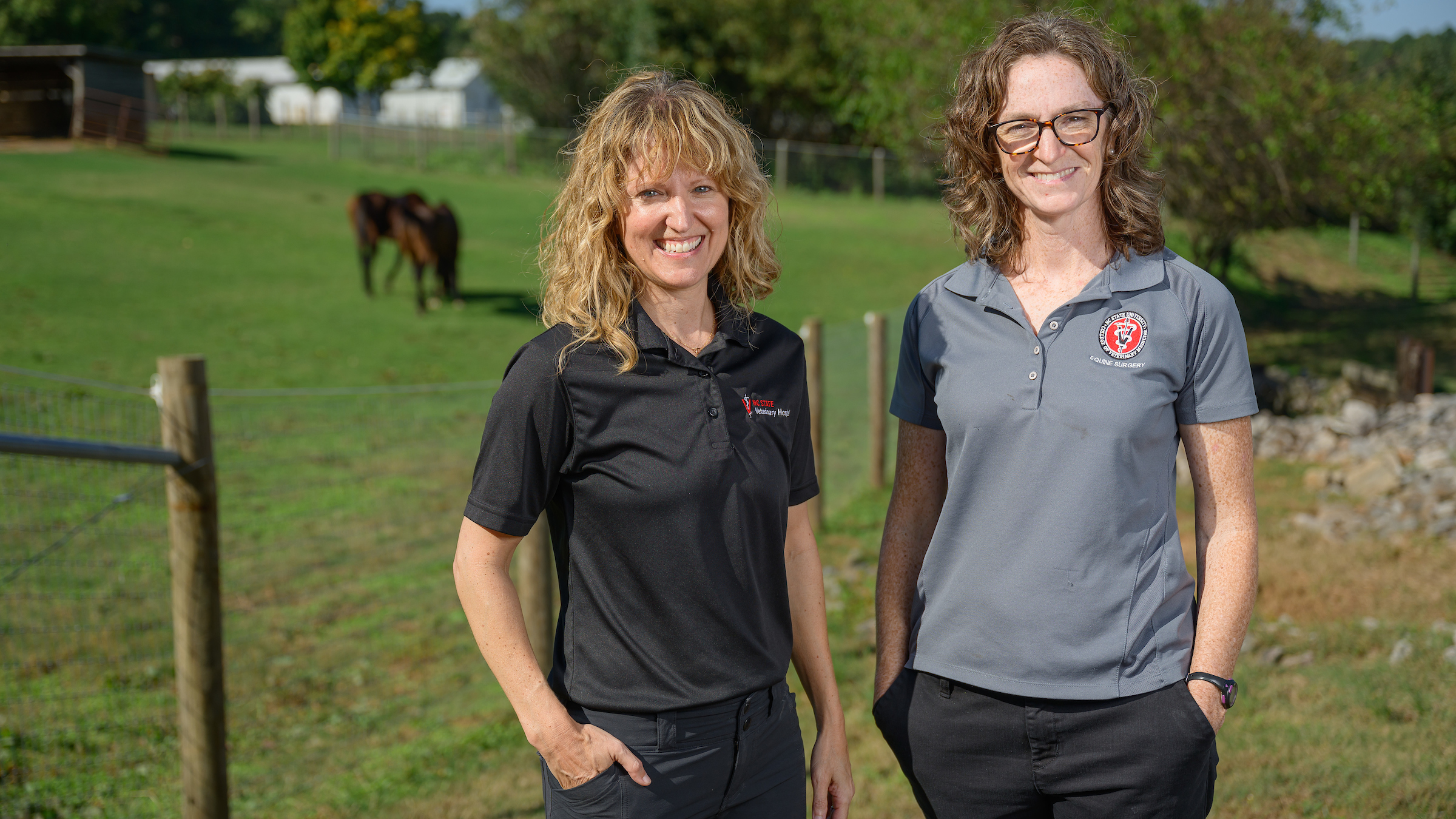
There’s no question that North Carolina is an equine-friendly state. Horses and the people who love them brought an estimated $2.9 billion in economic impact to the state last year, according to the North Carolina Horse Council, and nearly a third of North Carolina households include horse enthusiasts.
While this equestrian energy shows little sign of slowing, the veterinarians who work hoof and nail to keep horses healthy have noted a troubling trend: Despite the rising demand for services in recent years, the statewide shortage of equine practitioners is worsening and staff recruitment struggles are growing, leading to increased burnout in an already under-resourced area of veterinary medicine. North Carolina isn’t alone in this challenge, either — just 4.1% of veterinarians nationwide work in equine practice.
In partnership with equine veterinarians across North Carolina, the NC State College of Veterinary Medicine is working to address these disparities. The new Equine Scholars Program, launching this fall, will recruit pre-veterinary undergraduate students with a demonstrated interest in horse health to join NC State’s Doctor of Veterinary Medicine program from partner universities statewide to strengthen the pipeline of future equine veterinarians for our state.
Modeled after the established Food Animal Scholars initiative, this equine counterpart will pair undergraduate students accepted into the program with veterinary mentors from NC State and private practice for hands-on shadowing and mentorship opportunities. Accepted scholars who meet the College of Veterinary Medicine’s admissions criteria will be granted a seat in NC State’s DVM program once they graduate with their bachelor’s degree.
“As a land-grant institution offering North Carolina’s only veterinary college, one of NC State’s missions is to deliver excellent veterinarians who can take care of the animals owned by the people of North Carolina,” says Dr. Callie Fogle, a clinical professor of equine surgery who founded the Equine Scholars Program with associate professor Dr. Katie Sheats. “The same applies for horses and their owners.”
The goal is to help students graduate with an in-depth understanding of how to practice equine medicine in a way that makes it a sustainable, lifelong career, she says.
“We’re providing them with a solid network of veterinarians they can rely on so they feel like they’re part of the larger community of equine veterinarians in the state,” Fogle says.
Applications opened Nov. 1 and students with at least junior status and one summer remaining before their graduation at four partner universities with agricultural or equestrian focuses — NC State, North Carolina Agricultural and Technical State University, the University of Mount Olive and St. Andrews University — are invited to apply for six slots in the program’s first cohort. Interested students from other universities are encouraged to declare their interest to inform future program expansion but will not yet be considered for admission.
Program leaders will pair each admitted undergraduate scholar with two faculty advisers, one from the College of Veterinary Medicine and one from their undergraduate institution, to guide their academic development and prepare them for NC State’s DVM program.
Based on scholars’ career interests, Fogle and Sheats will also match participants with an equine veterinarian mentor practicing within the state. Each scholar will work with their mentor during a 10-week shadowing experience between their junior and senior years to get a sense of life on the job.
Sheats and Fogle credit two such community veterinary partners, Dr. Lisa Kivett from Foundation Equine Clinic in Southern Pines and Dr. Cathy Mittenson with Flat River Veterinary Hospital in Rougemont, for helping identify the need for a student equine pipeline.
“One of the biggest pieces that helps to sustain equine veterinarians in a very challenging, but very rewarding, career is the support structures in their community,” Sheats says. “Equine students can sometimes hear discouraging things about choosing equine medicine, and it’s much easier to weather those doubts when you see the students and practitioners who are in it with you and making the same commitment and choice.”
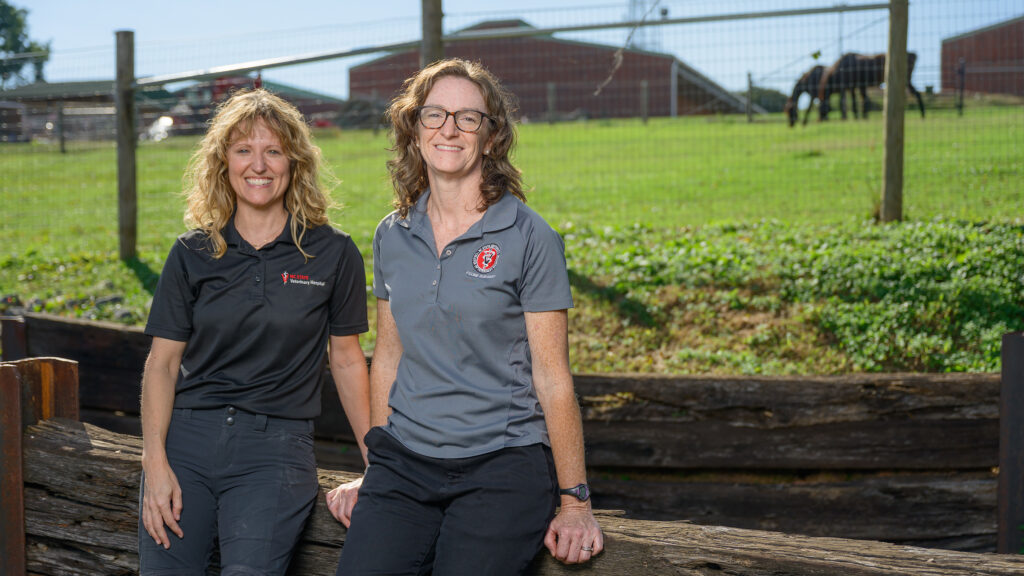
Equine medicine, like other areas of large animal medicine, often involves long hours on the job and significant travel between appointments plus overnight and weekend emergency duties. In recent years, horse-focused veterinarians have dedicated themselves to improving the field’s work-life balance and salary expectations and passing that approach along to trainees.
Both Sheats and Fogle credit supportive mentors as the reason they entered equine medicine. For Sheats, that guide was NC State equine medicine professor-turned assistant dean Dr. Sam Jones. For Fogle, her mentor was equine surgeon and current Ohio State University College of Veterinary Medicine Dean Rustin Moore.
In their own mentor roles through the new program, Fogle and Sheats will also connect scholars to student equine organizations and research opportunities at the College of Veterinary Medicine to grow trainees’ networks and confidence before they even attend a DVM lecture.
“Students at our partner institutions are already emailing us with questions about the scholars program,” Sheats says. “There’s already buzz.”
The Equine Scholars Program is just one of many available resources for equine-interested students to launch their veterinary careers at the NC State College of Veterinary Medicine. The college offers hands-on experiences through the Large Animal Treatment Crew, wet labs and community outreach opportunities; hosts an active Student Chapter of the American Association of Equine Practitioners, or SCAAEP; maintains a large network of preceptorship and externship experiences; and supports dedicated and expert equine faculty.
The college is also home to an equine farm, an Equine Ambulatory Emergency Service supporting area equine practices and horse owners and a Large Animal Hospital with state-of-the-art medical equipment. NC State’s Large Animal Hospital is also in the process of expanding and renovating to better accommodate community needs.
“NC State offers tremendous opportunities within equine veterinary medicine, and the Equine Scholars Program is another way we can highlight the importance of these careers in North Carolina,” Sheats says.
- Categories:
